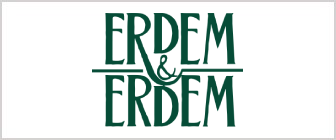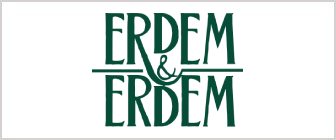Introduction
Article 2 of Law No. 7524 on the Amendment of Tax Laws and Certain Laws and Decree-Law No. 375 ("Law No. 7524") and the income tax exemption for the benefits provided to employees by issuing share certificates, which is regulated under Article 17 of Income Tax Law No. 193 ("ITL"), entered into force as of 02.08.2024. In this context, the portion of the fair value of the share certificates given to the employees by the companies determined as techno-initiative companies by the Ministry of Industry and Technology, which are considered within the scope of wages, does not exceed the amount of one year's gross wage in that year, is exempt from income tax under certain conditions.
Stock Option Plans and Their Wage Nature
Stock option plans give promising company employees the right to acquire shares in the company's shares for a specific price or free of charge within certain conditions or periods within the scope of a contract signed between the employees and the employer company.
Article 61 of ITL defines wages as benefits that can be represented by money, cash, or money given to employees subject to an employer and connected to a specific workplace in return for service. A free or low-priced share certificate or a similar benefit to be given to an employee in return for their work in a company is also considered as wages and these amounts should be taxed by withholding tax in the taxation period in which they pass to the legal and economic savings of the employees.
About this income tax, an exemption has been regulated within the scope of Law No. 7524, and the portion of the fair value of the share certificates, which are given to the employee by the techno-initiative companies free of charge or at a discount under certain conditions and which are accepted as wages, not exceeding the amount of one year's gross wage in that year, is exempt from income tax.
Conditions of Exception
Under Article 17 of the ITL, the conditions for the application of income tax exemption in stock option plans are summarized as follows:
The Employer Company Qualifies as a Techno-Initiative Company
To benefit from the exemption, the employer providing benefits to its employees by issuing share certificates should be a techno-initiative company by the criteria determined by the Ministry of Industry and Technology. As of the date of this article, the Ministry of Industry and Technology has not determined the criteria for a techno-venture company. Although it does not constitute a legal basis for this tax exemption, in the information brochure titled Techno-Initiative Strategy published by the Ministry of Industry and Technology[1] , it is seen that techno-initiative is defined as a maximum of 10 years old venture company that carries out technology and innovation-oriented activities, has a scalable business idea with a rapid growth potential.
The Fair Value of the Share Certificates Accepted as Wage on the Date of Issuance Not Exceeding the Employee's Annual Gross Wage
The portion of the fair value of the share certificates, which are given to the employee free of charge or at a discount and accepted to be like remuneration, that does not exceed the amount of one year's gross salary of the service employee in that year, is exempt from income tax. In determining the fair value, the normal trading value of the share certificates on the day of valuation is taken as basis by Article 266 of the Tax Procedure Law No. 213. Gross wage is the sum of the gross amount of taxable permanent payments such as salaries, premiums, bonuses, social benefits and increments the employer pays the employee in return for their services.
Holding of Share Certificates for a Certain Period of Time and Exemption Rates Related to These Periods
The said exemption is applied in the period in which the share certificates are given to the employee, and these share certificates must be held for a certain period according to specific exemption rates. In this context, the period of disposal of the share certificates acquired by the employee affects the exemption amount. From the date of acquisition of the share certificates acquired by the employee;
- If disposed of within 3 years, the entire exempted tax,
- 75% of the exempted tax in case of disposal within 4-6 years,
- 25% of the exempted tax in case of disposal within 7-12 years,
will be collected from the employer together with the default interest without any tax loss penalty.
Therefore, for the exemption to be applied at 100%, the share certificates must be held for more than 12 years from the date of acquisition and only then will no tax be payable. The exemption is not applicable if the shares are held for less than 3 years.
Other Matters
The statute of limitations for the taxes not collected due to the exemption starts from the beginning of the calendar year following the year in which the employee disposes of the share certificates.
Employers who will subject the benefits provided to the employee by issuing share certificates to the employee to the income tax exemption within the scope of this regulation should fill out the "Notification Regarding Wage Exemption in Benefits Provided to Service Employees by Issuing Share Certificates" in the annex of the Income Tax General Communiqué Serial No. 326 and submit it as an annex to the withholding and premium service declaration for the month in which the share certificates are issued.
Conclusion
The income tax exemption for stock option plans can be considered an essential step in Türkiye’s Techno-Initiative Strategy. However, the incentives and benefits of the exemption will be diminished if the exemption is provided only for companies that qualify as techno-initiative companies and if the holding period is too long for the full exemption to be applied. In addition, the fact that the tax is collected from the employer together with the default interest if the period of holding the shares by the employee is less than 12 years creates an unfavorable situation for employers by essentially imposing the income tax on the employer.


